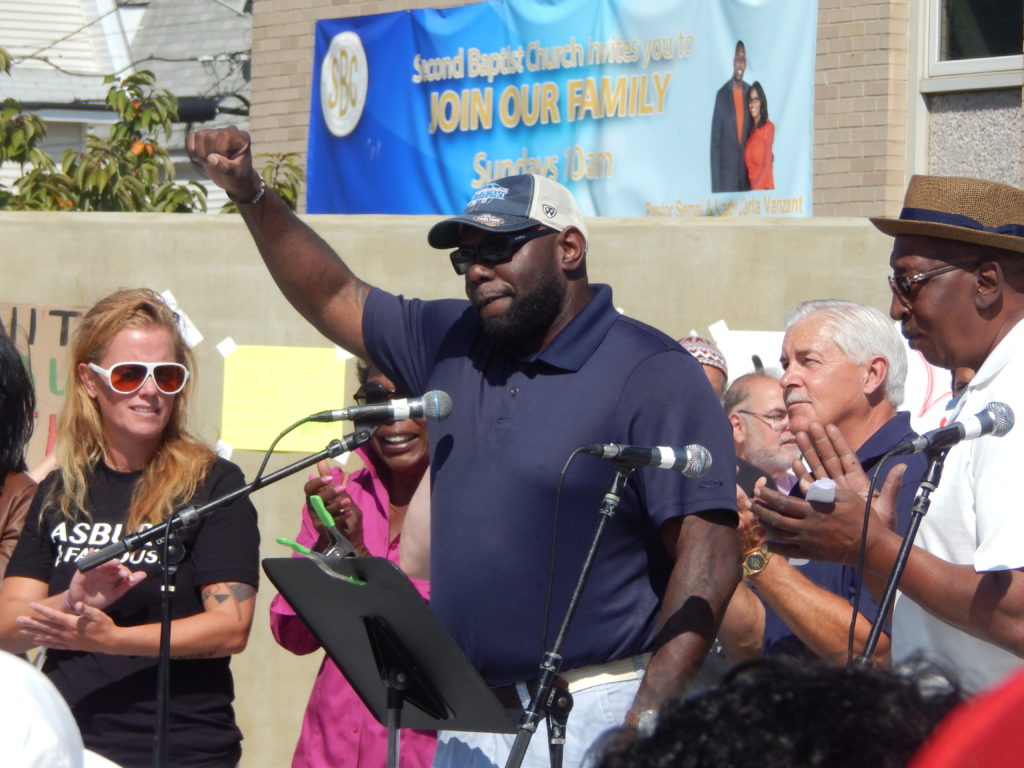Sen. Singleton Shapes National Recommendations for Future of Work Policy

Sen. Singleton Shapes National Recommendations for Future of Work Policy
Policymakers and leading experts develop state and local solutions for challenges of a changing workplace
Washington, DC – A newly released set of extensive recommendations for state and local elected officials to address the future of work features input from Senator Troy Singleton (D-Moorestown), recognizing him as one of the nation’s most innovative state policymakers on economic issues, including for his work on portable benefits.
“New technology has yielded a modern economy that allows greater flexibility for independent contractors, but because many of their jobs do not come with health insurance, retirement plans or paid leave, these workers are more vulnerable than many of their counterparts in the traditional workforce,” said Senator Singleton. “The way that people work may be transforming, but the notion that all workers deserve to be treated with respect and should have access to benefits that will foster their long-term well-being has not changed.”
The policy agenda, issued by the NewDEAL Forum, draws from the work of innovative policymakers, as well as input from leading think tanks and members of the private sector. Singleton is one of about 20 contributing elected officials. Proposals are accompanied by an appendix of more than 20 specific programs, laws, and pieces of proposed legislation from policy experts and elected officials across the country who are concerned that public policy has not kept pace as globalization and technological innovation have transformed the modern workplace.
“Senator Singleton’s contributions to this agenda were tremendously valuable,” said NewDEAL Forum Executive Director Debbie Cox Bultan. “Any attempt to update public policies for the future of work must recognize the growing insecurity among workers as the changing nature of employment has made it harder to access the level of benefits that was the norm in decades past. We have learned a lot from Senator Singleton’s proposal to provide portable benefits to gig workers and now more leaders across the country will also have the opportunity benefit from his work on this issue.”
The agenda includes information about Singleton’s portable benefits bill that was recently approved by the Senate Labor Committee. That proposed legislation is one of the key sources for the report’s recommendation for states to provide both the mechanism and funding to make benefits available for independent contractors and non-traditional workers. Specifically, the report says policymakers should establish “an entity (governed by the state or by an authorized non-profit) to provide benefits outside of the traditional employment relationship.”
The full policy recommendations linked here also state that benefits should be funded “primarily through payments by contracting entities (including online platforms and other entities that heavily rely on contractors) or by user fees – not (predominantly) by contributions from workers.”
“In a nation of diverse communities, solving these challenges requires state and local leadership,” write U.S. Senator Mark Warner and former Delaware Governor Jack Markell in an introduction to the recommendations from the Honorary Co-chairs of the Forum’s sister organization, NewDEAL Leaders. “But it is hard, if not impossible, for individual policymakers to research and create comprehensive policy agendas. They need workable ideas for what to do, tailored to their levels of government and areas of oversight. And that is exactly what this report by the NewDEAL Forum is all about: providing state and local elected officials with a road map of practical steps they can take to help their constituents navigate the changing world of work.”
The NewDEAL Forum Future of Work Policy Group is co-chaired by Houston City Councilwoman Amanda Edwards and Massachusetts State Senator Eric Lesser, who worked with the Aspen Institute and other partner organizations, in addition to the contributing elected officials, to develop practical solutions that state and local officials can pursue.
The report lays out stark statistics, and notes that inequalities and societal divisions are exacerbated by our economic transformation, to underscore the urgency with which leaders must act. Recommendations focus on policy ideas in three key areas: improving workforce training, modernizing the social safety net, and supporting entrepreneurship and innovation.
Embedded within the sections of the report are proposals to break down barriers to success in the workplace for women, who remain primary family caregivers and have lacked access to key supports like apprenticeships.
“State and local policymakers are developing creative solutions to address the challenges surrounding the future of work,” said Alastair Fitzpayne, Executive Director of the Aspen Institute Future of Work Initiative. “As leaders look for policies to better support workers in a rapidly changing economy, the NewDEAL Forum’s Future of Work Policy Group has developed promising ideas to help policymakers pilot new approaches and address these challenges in their communities.”
“These ideas are a powerful start, but they are just ideas. We urge state and local leaders of all parties and perspectives, in all places, to consider these and other ideas,” write Senator Warner and Governor Markell. “We must act like the success of our people and our nation depend upon adapting and modernizing – because it does.”
About the NewDEAL Forum
The NewDEAL Forum is a non-profit organization which identifies and promotes innovative, future-oriented state and local pro-growth progressive policies that can improve the lives of all Americans. By facilitating the identification and spread of policy ideas, the NewDEAL Forum seeks to foster economic growth, reduce barriers to opportunity and promote good government in communities, cities and states throughout the country. The Forum advances its mission by researching, identifying and sharing state and local pro-growth progressive policy ideas and bringing together public, private and non-profit sector policy experts to exchange ideas and discuss the country’s biggest challenges.
###





